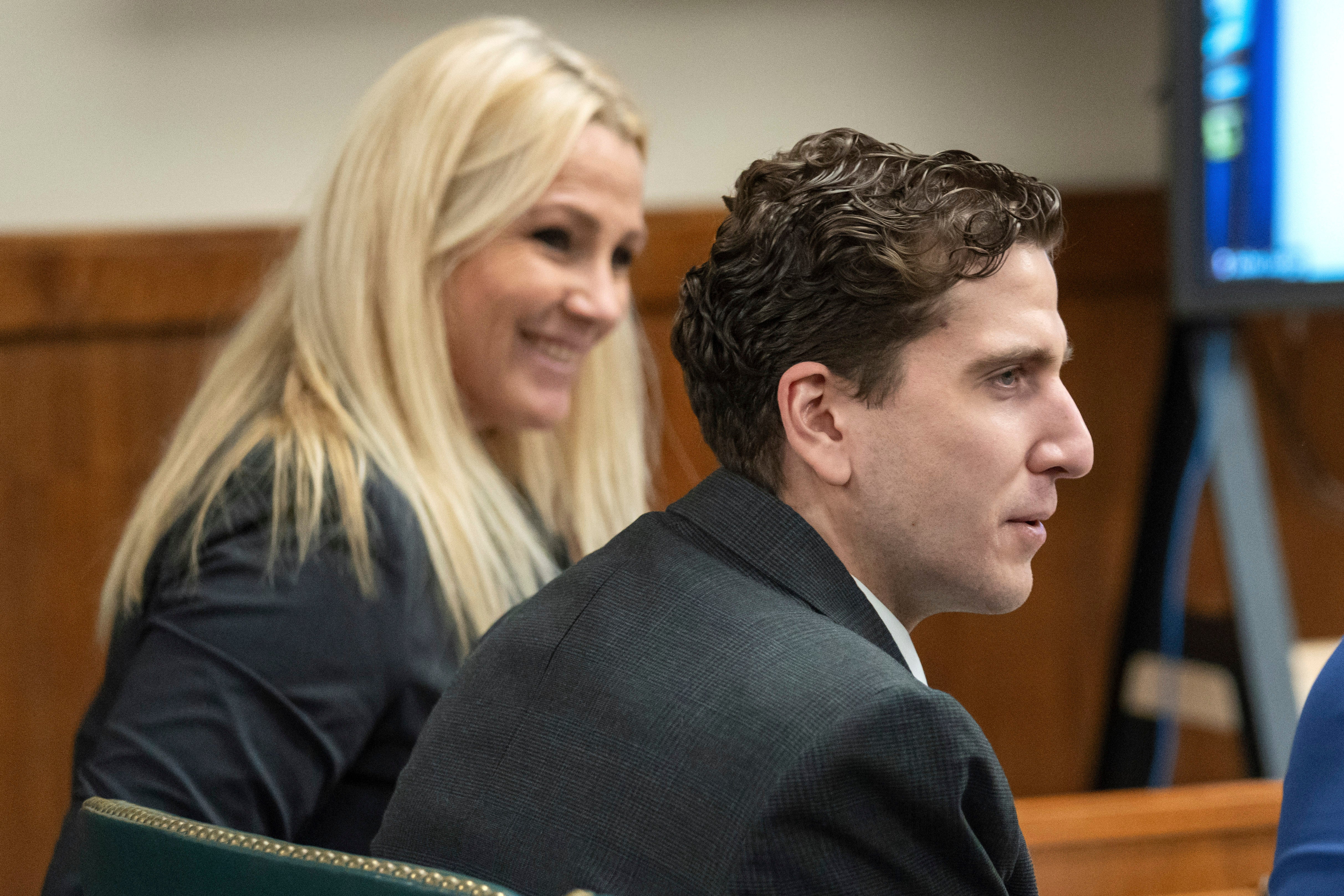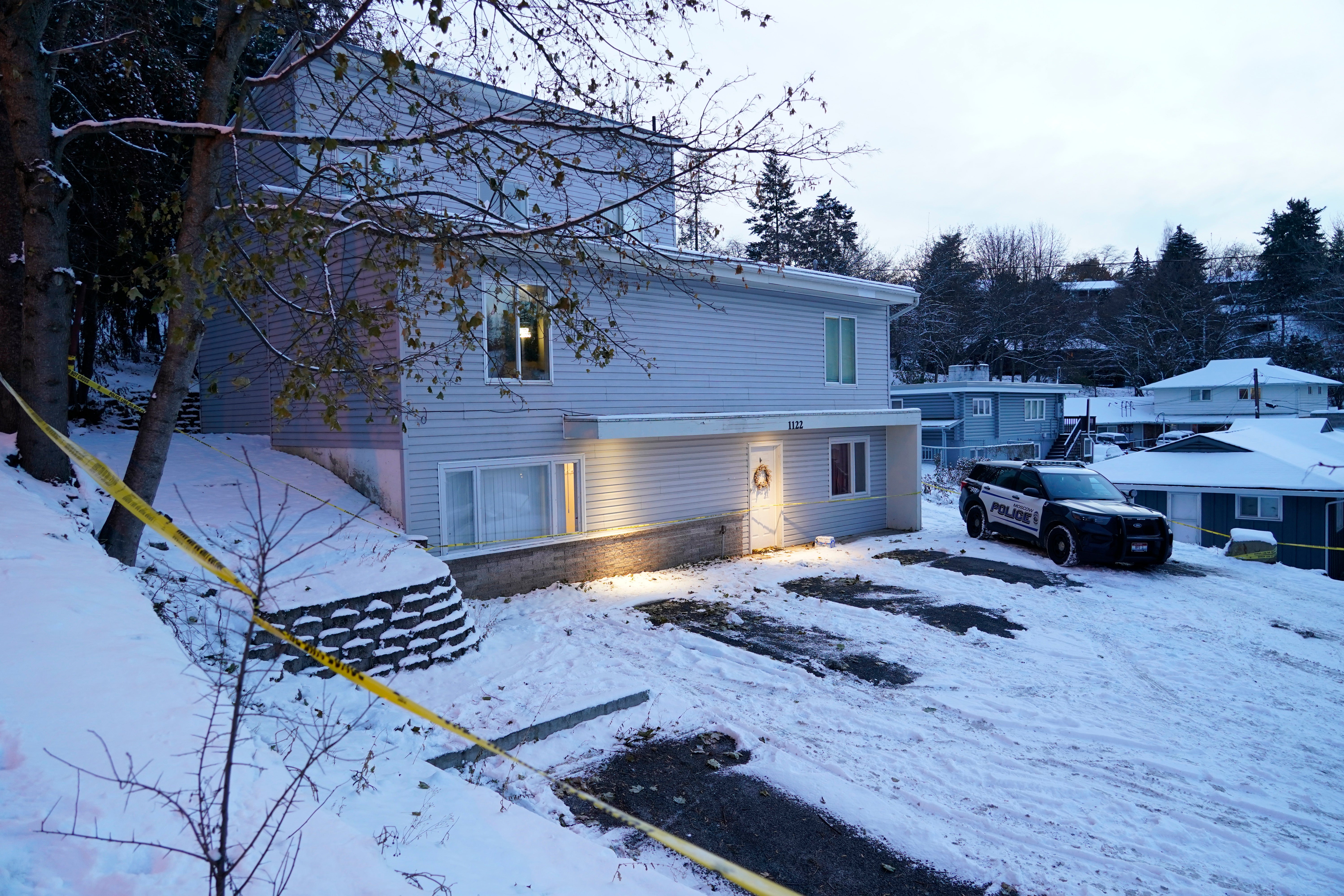Idaho murders scene reopened by FBI as Bryan Kohberger case drags on
The trial involving the deaths has been delayed indefinitely
FBI investigators recently returned to the Idaho home where accused murderer Bryan Kohberger allegedly stabbed four college students to death to obtain additional information as his trial involving the deaths remains delayed indefinitely.
In a statement, the University of Idaho said investigators and the prosecution recently asked the institution’s permission for access to the residence, where the November 2022 murders of Ethan Chapin, 20, Xana Kernodle, 20, Madison Mogen, 21 and Kaylee Goncalves, 21, allegedly occurred.
The owner of the residence donated the property to the university following the murders.
In August, Mr Kohberger waived his right to a speedy trial during a court hearing. He’s been charged with four counts of first-degree murder and one count of felony burglary. The state has previously announced its intention to seek the death penalty if Mr Kohberger is convicted.
The families of the victims and defence were notified prior to the FBI revisiting the property, the university said.
The home, which the university intends to demolish, is located on King Road in Moscow, a city about 80 miles south of Spokane, Wash.
According to the university, the FBI went to the residence on 31 October and again on 1 November to obtain documentation to prepare visual and audio exhibits of the home, in addition to a physical model of the property.
Mr Kohberger’s trial had been scheduled for 2 October but the university said the time involved to build the visual displays was not possible within that timeline.

The Independent has reached out to the FBI and University of Idaho for comment.
On Monday, the FBI removed plywood securing the home’s windows and door, the news release stated. Once the work was finished, the FBI re-secured the residence.
The university said the home would not be torn down this semester but did not state a possible date or timeline for the demolition. The university intends to construct a healing garden to honour the victims once the home is no longer standing.

In July, the Idaho Statesman reported that Shanon Gray, an attorney for Ms Goncalves’s family said the university was disregarding the families’ requests to leave the home standing to pursue their own interests.
“The university asked for the families’ opinions on the demolition and then proceeded to ignore those opinions and pursue their own self-interests,” Gray told the newspaper. “The home itself has enormous evidentiary value as well as being the largest, and one of the most important, pieces of evidence in the case.”
While a court-imposed gag order remains in effect, neither the prosecutor’s office, investigators or law enforcement will be providing additional details, according to the university’s statement.

